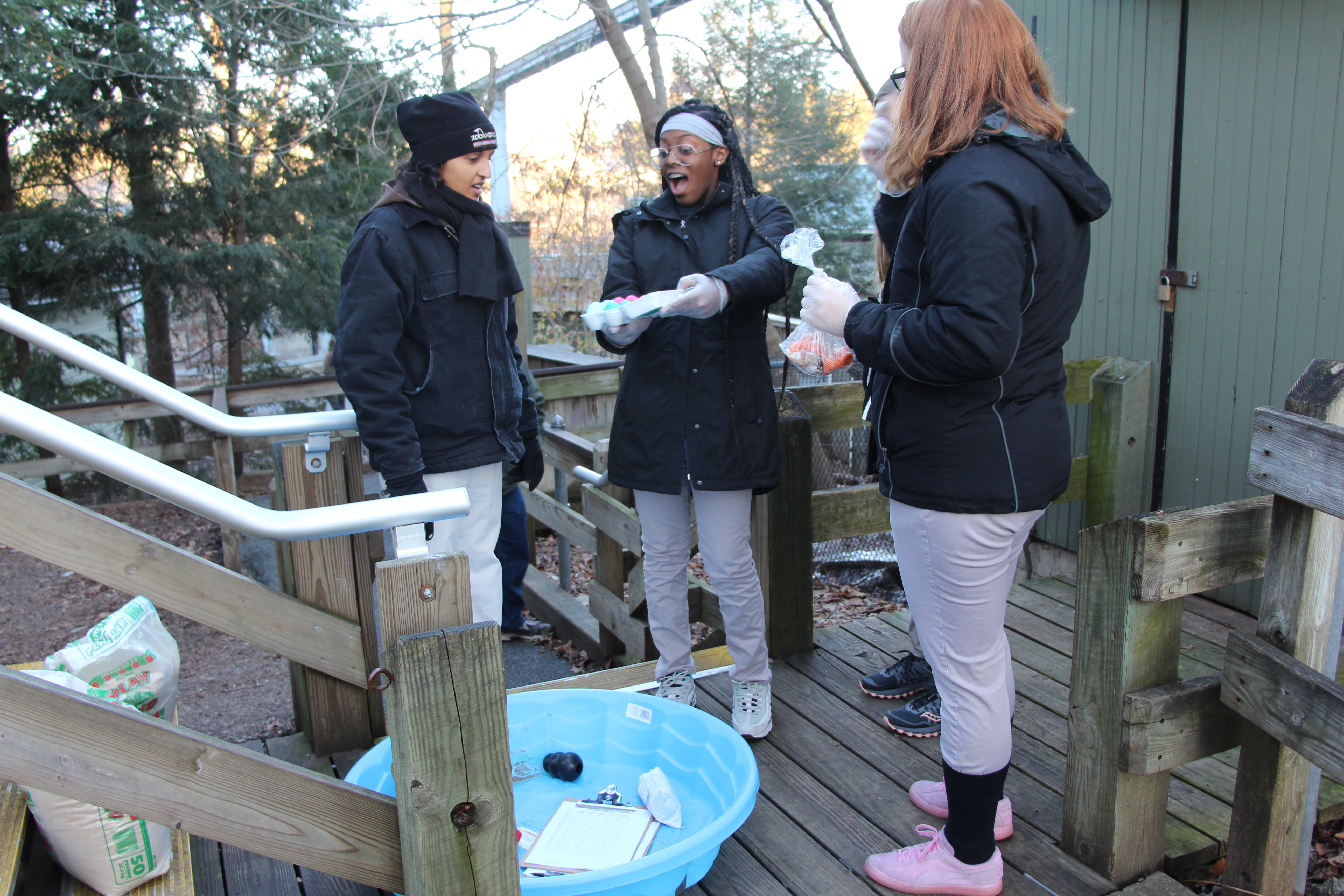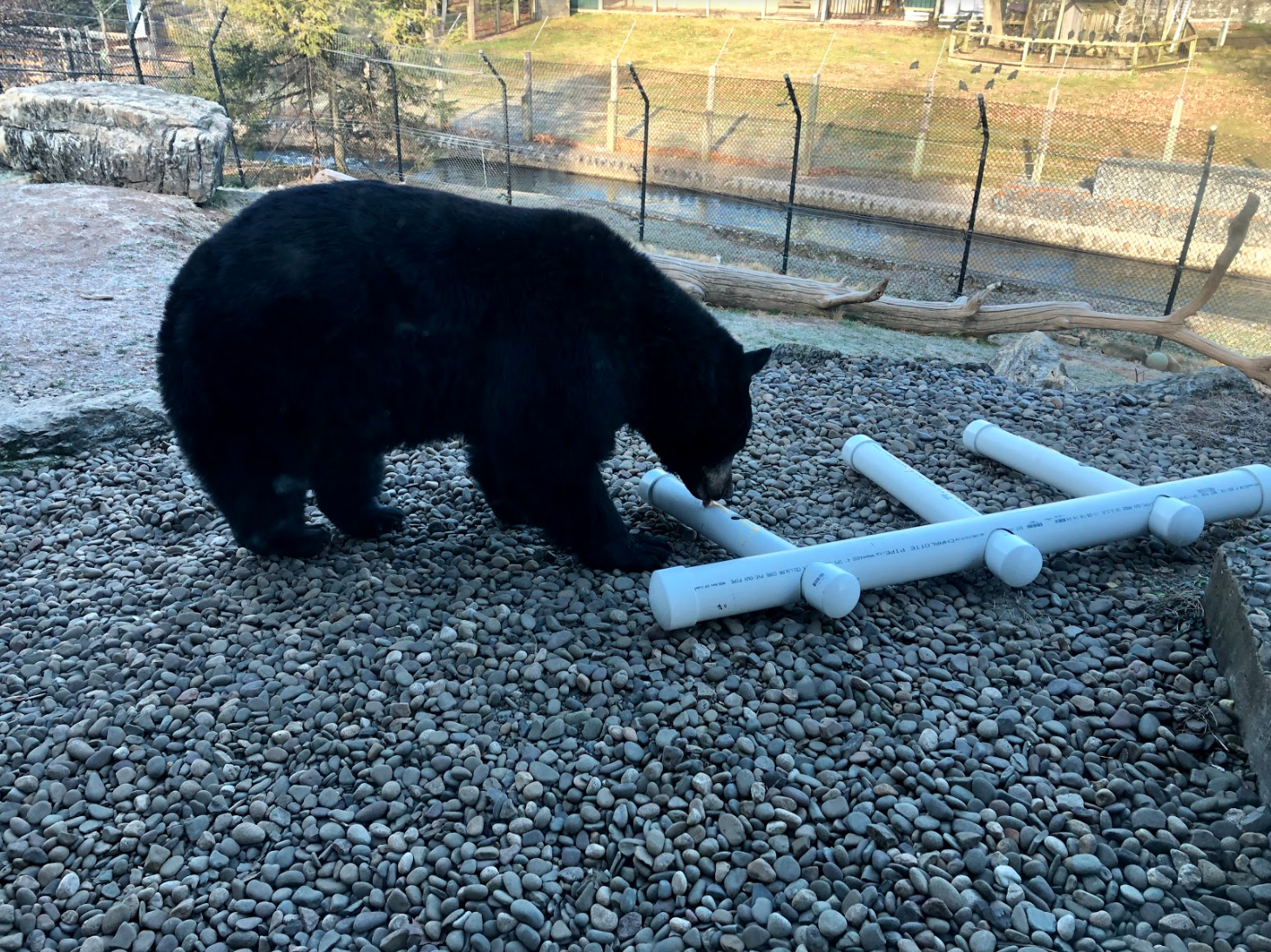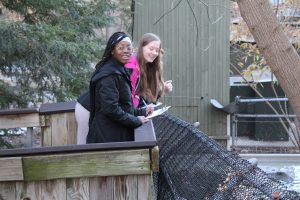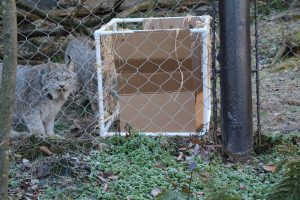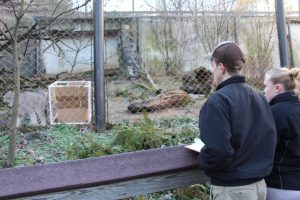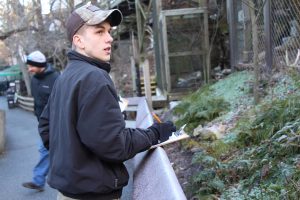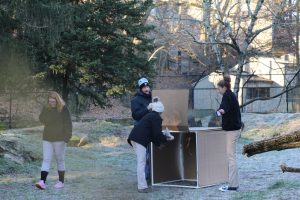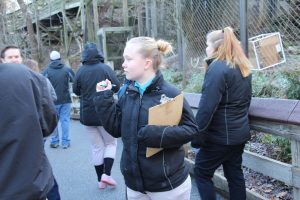MHS Students Design Enrichment Activities for Animals
Milton Hershey School sophomores who are enrolled in specialized agriculture and natural resources classes recently had the opportunity to visit Hersheypark ZooAmerica and observe specific animals.
Using the design thinking process, students began by collecting data about the animals’ daily interactions and activities. When they returned to the classroom, they used their data to create designs for enrichment activities that enhance the animals’ social, cognitive, sensory, and physical habitat experiences.
“We worked [with students] to provide captive animals with enriching experiences that keep their minds and bodies engaged in different ways,” said Brad Wasserman, MHS STEAM Instructional Advisor. “The activity integrated STEAM (science, technology, engineering, art, and math) while exposing them to potential careers.”
MHS students developed enrichment activities and created prototypes for bears, wolves, lynx, and otters. Their projects included a PVC pipe puzzle and a sandbox with hidden food items. The goal was to create new ways for animals to engage in healthy social behaviors, apply their cognitive processes, and use their senses through textures, unique odors, sounds, and visual imagery.
When students returned to the zoo to place their enrichment activities into the animals’ habitat, they spent time observing the effects of their designs and studying the animals’ reactions.
This real-world, problem-based learning activity was designed through a collaboration with the school’s Agricultural and Environmental Education (AEE) program and Career and Technical Education (CTE) program. Through open-ended challenges, students choose how they’re going to solve a problem and articulate how they’re going to do it—increasing student voice and student choice in the classroom.
Learn more about problem-based learning.


